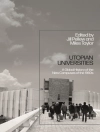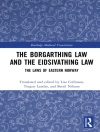Turkey’s bid to join the European Union has lent new urgency to the issue of the Armenian Genocide as differing interpretations of the genocide are proving to be a major reason for the delay of the its accession. This book provides vital background information and is a prime source of legal evidence and authentic Turkish eyewitness testimony of the intent and the crime of genocide against the Armenians. After a long and painstaking effort, the authors, one an Armenian, the other a Turk, generally recognized as the foremost experts on the Armenian Genocide, have prepared a new, authoritative translation and detailed analysis of the Takvim-i Vekâyi, the official Ottoman Government record of the Turkish Military Tribunals concerning the crimes committed against the Armenians during World War I. The authors have compiled the documentation of the trial proceedings for the first time in English and situated them within their historical and legal context. These documents show that Wartime Cabinet ministers, Young Turk party leaders, and a number of others inculpated in these crimes were court-martialed by the Turkish Military Tribunals in the years immediately following World War I. Most were found guilty and received sentences ranging from prison with hard labor to death. In remarkable contrast to Nuremberg, the Turkish Military Tribunals were conducted solely on the basis of existing Ottoman domestic penal codes. This substitution of a national for an international criminal court stands in history as a unique initiative of national self-condemnation. This compilation is significantly enhanced by an extensive analysis of the historical background, political nature and legal implications of the criminal prosecution of the twentieth century’s first state-sponsored crime of genocide.
Tabela de Conteúdo
Ottoman-Turkish Words and Names
Preface
Vahakn N. Dadrian and Taner Akçam
PART I: THE CONDITIONS SURROUNDING THE TRIALS
Chapter 1. History of the Turko-Armenian Conflict
Vahakn N. Dadrian
Chapter 2. Military Defeat and the Victors’ Drive for Punitive Justice
Vahakn N. Dadrian
Chapter 3. The Preparations for Court-Martial
Vahakn N. Dadrian
Chapter 4. The Initiation of Courts-Martial
Vahakn N. Dadrian
Chapter 5. Emergent Kemalism and the Courts-Martial
Vahakn N. Dadrian
Chapter 6. The Series of Major Trials and the Related Verdicts: The Falsification of the Arguments of “Relocation, ” “Civil War” and “Intercommunal Clashes”
Vahakn N. Dadrian
Chapter 7. Legal Proceedings as a Conceptual Framework
Vahakn N. Dadrian
Chapter 8. A Summary of the Conditions Surrounding the Trials
Vahakn N. Dadrian
PART II: THE TRIALS AND BEYOND
Chapter 9. The Full Texts in English of the Indictments and Verdicts
Chapter 10. The Judicial Liquidation of Some of the Arch Perpetrators by both CUP and the Kemalist Authorities and the Demise of Other Accomplices
Vahakn N. Dadrian
Chapter 11. Death Sentences Handed Down by the Military Tribunal in Istanbul
Taner Akçam
Chapter 12. Coverage of the Trials by the Istanbul Turkish Press
Taner Akçam
Chapter 13. Formation and Operation of the Ottoman Military Tribunals
Taner Akçam
Appendix
Glossary of Terms
Bibliography
Sobre o autor
Taner Akçam was born in the province of Ardahan in the northeast of Turkey. As the editor-in-of a political journal, he was arrested in 1976 and sentenced to 10 years’ imprisonment. One year later, he escaped and fled to Germany as a political refugee. He is the first Turkish scholar to have drawn attention to the historicity of the Armenian Genocide and has been persecuted by the Turkish state for it. In April 2006, the Commonwealth of Massachusetts presented him with a distinguished award for his outstanding work in human rights and fighting genocide denial. Currently, he is Associate Professor of History and the Kaloosdian/Mugar Chair in Armenian Genocide Studies at the Center for Holocaust and Genocide Studies, Clark University












